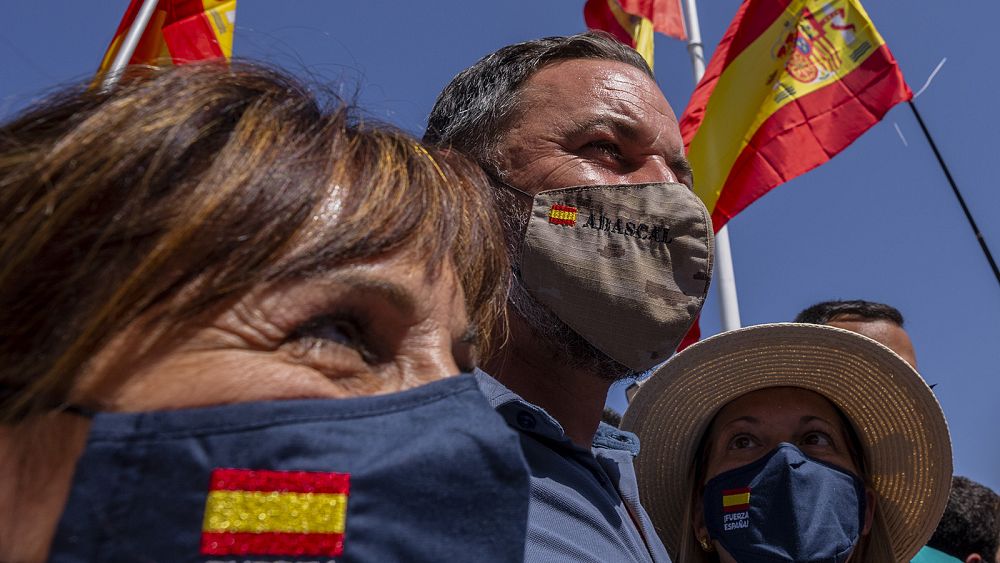
The two-day summit organised by Vox, Spain’s far-right party that keeps gaining traction in the southern European country, gathered a strong lineup of the continent’s nationalist, populist and illiberal politicians.
Some of the important figures attending are Hungarian prime minister Viktor Orbán and his Polish counterpart, PiS’ Mateusz Morawiecki, as well as France’s presidential candidate, Marine Le Pen.
The leader of Vox, Santiago Abascal, “the aim is to continue the work begun at the Warsaw summit [in December],” which he describes as defending “Europe against external and internal threats by promoting an alternative to the globalist trend which threatens the European Union by attacking the sovereignty of nations.”
Vox is Spain’s third-biggest party in the parliament, and it keeps gathering supporters prior to the 2023 general elections.
The anti-LGBT+, anti-migrant nationalists could capture as much as 20.5 per cent of the vote — up from 10.3% in 2019 — according to a January poll by Electomania, an independent outlet tracking Spanish electoral trends.
Far-right politicians from Austria, Belgium, Bulgaria, Estonia, Lithuania, Romania and the Netherlands are also there.
In July, Le Pen, Orbán, Abascal and Italy’s Matteo Salvini signed a joint declaration together with a dozen others announcing plans for a “grand alliance” in the European Parliament.
The goal, they said, of this alliance is “to reform Europe”.
It is important to note that Salvini, leader of Italy’s anti-immigration Lega Nord, is not at the Madrid summit, nor was he at the Warsaw gathering.
In December, the parties discussed joint votes on sovereignty and immigration issues in the European Parliament but stopped short of striking a formal alliance.
Right-wing and pro-sovereignty parties are part of two different groups within the European Parliament, the Identity and Democracy group, or ID, and the European Conservatives and Reformists, ECR.
Not all of the people attending the summit in Madrid are part of the same group.
Last March, Orbán’s party, Fidesz, left the centre-right European People’s Party or EPP, the biggest group in the European Parliament. It is now looking for a new group to join.
Both Poland and Hungary have been locked in a dispute with Brussels over their perceived reversal of EU democratic norms. They are also fighting a mechanism linking the payment of EU funds to the rule of law.
They both filed complaints with the European Court of Justice over the mechanism and the ruling is expected on 16 February.